Saint Levant Is Out For Hearts And Minds
The Palestinian rapper is forging a career on his own terms
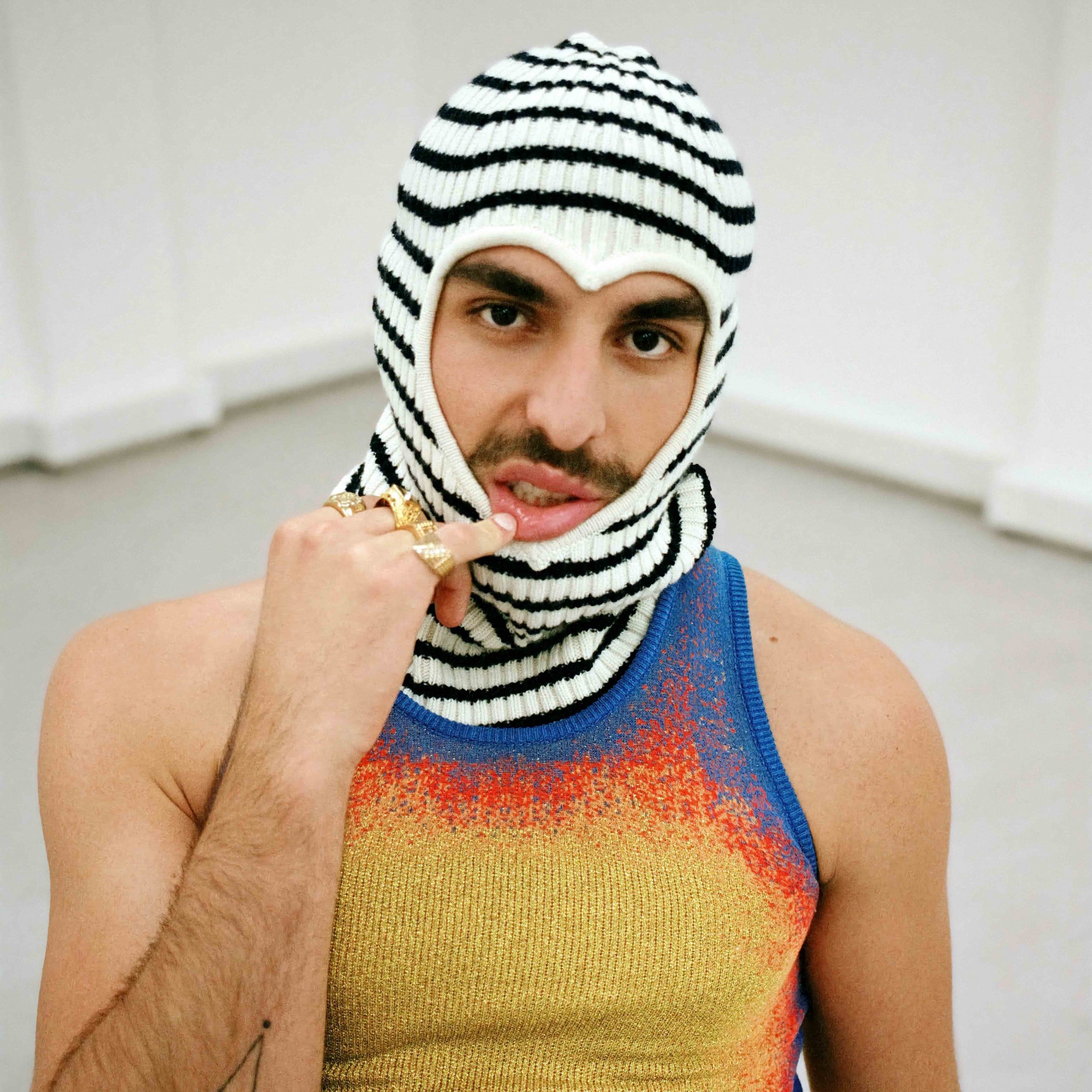

Over the past few years, he has changed aliases depending on each creative venture he pursued. Today, he’s Saint Levant, but behind the stage name is Marwan Abdelhamid, born during the second Inftifada in Jerusalem to a French-Algerian mother and Palestinian-Serbian father. At a time where the censorship of Palestinian narratives across mainstream media is at record highs, Saint Levant has transcended barriers to claim his space, dismantling the inaccurate narratives circulating about Palestinian creatives both online and off. But who is Saint Levant and how did he get here?
Marwan Abdelhamid grew up in Gaza. In 2007, his family were forced to flee to Amman, Jordan following the outbreak of a civil war in the Strip. He hasn’t been back since. “My teenage years were defined by a feeling of being kind of out of place,” he says, joining YUNG from his apartment in Los Angeles. “I went to an American school with a lot of privileged Arab kids. My mum worked at the United Nations so that’s the only way they could afford to send us there. We don’t come from a high-class family,” he explains. “I grew up around a lot of privileged kids but at the same time I used to play for Al-Wehdat Sports Club.” Al-Wehdat Sport Club is a Jordanian sport club founded in 1956 and represents a Palestinian refugee camp in Amman. “I would go to the refugee camp every day. I wasn’t poor but I also wasn’t rich. I spoke French at home but my Arabic was broken so I was constantly trying to fit into these communities.” Throughout his adolescent life, Abdelhamid had found himself at multiple crossroads, constantly questioning his identity as an individual and to which society he belonged to.
Growing up in Gaza, Abdelhamid sought refuge in music. One of his core memories as a child is sitting in the back of the car whilst his dad drove him around as they both jammed to Lenny Kravitz. “My dad was a huge music guy and music was a big part of my childhood,” he explains, smiling as he reflects on those innocent and blissful memories. “I started playing the piano when I moved to Amman, but I hated it. I didn’t like playing the classic songs – I wanted to play Bruno Mars,” he says, as he proceeds to sing Mars’ 2010 track, “Billionaire”.
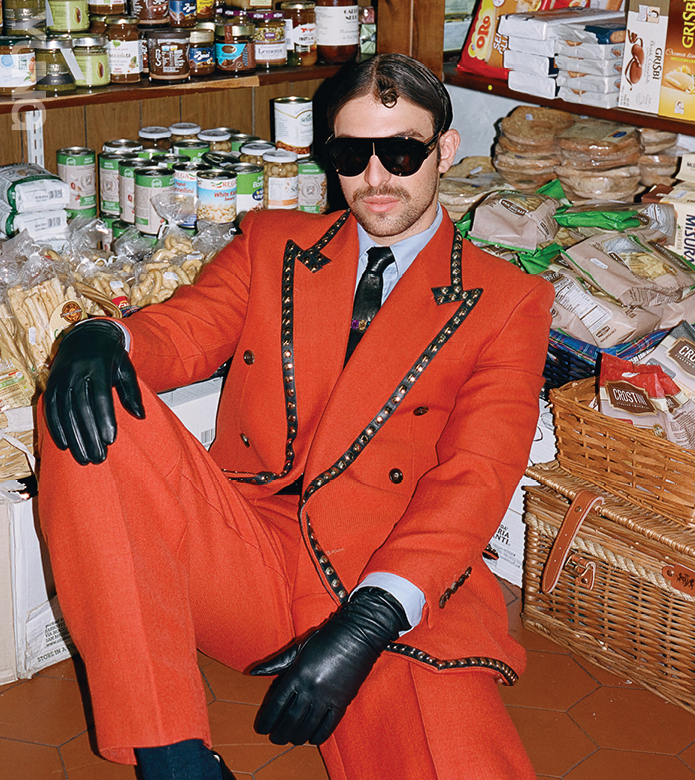
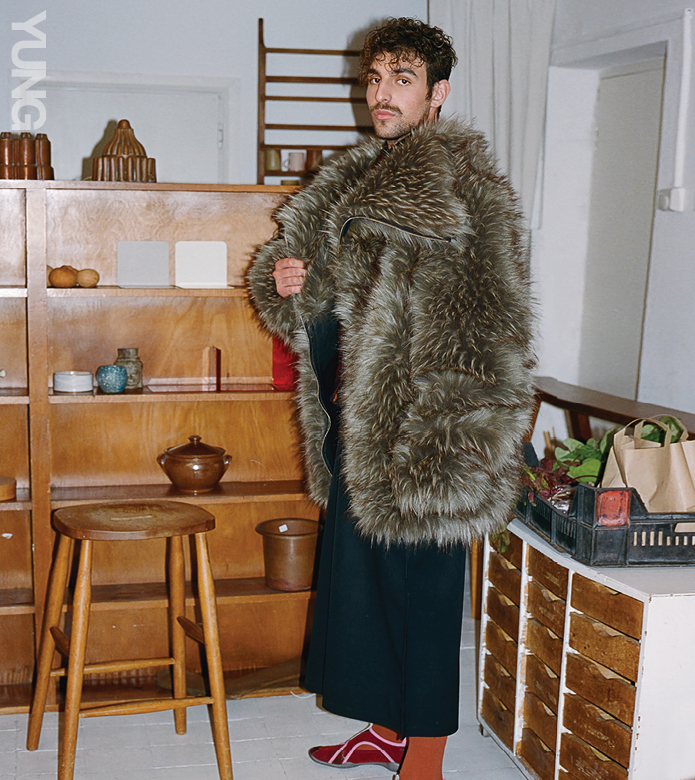
His parents were always supportive of every creative venture he set out to pursue, whether it be piano, rap or saxophone, which he picked up years later. “My parents aren’t the typical Arab parents,” he explains. Point in case, his dad started out as a hotel entrepreneur, who then became a movie producer and music executive. His mother, on the other hand, worked at the United Nations, but had always dreamt of something else. “My mum wanted to be a dancer growing up, but her parents wouldn’t let her, so she made a promise to herself that she would never be like that with her kids.”
With a strong support system around him, Abdelhamid refused to conform to social norms. Some call that rebellious. I mean, it is rare and it takes a lot to be at peace with who you are and how you want to live your life. But getting here didn’t come easy and he faced many hurdles along the way. “I am used to being humiliated,” he explains, “private school kids would make fun of me because I used to paint my nails and I had an earring. At the Al Wehdat refugee camp I was always picked on because I was the little French guy that didn’t speak Arabic too well.” He repositions the camera and smiles saying “but they’re all in my DM’s today saying how proud they are of me.”
While many may know Abdelhamid as Saint Levant from his music, he actually started on TikTok, creating content on issues concerning women’s rights and Palestinian liberation. He downloaded the social media app during his mandatory two-week quarantine upon returning from America to Jordan at the height of COVID-19. He was subconsciously channeling a part of his identity that he always knew existed. “I was very focussed on how we actually free Palestine. That was the question that guided my whole life trajectory. I was asking a lot of questions publicly.”
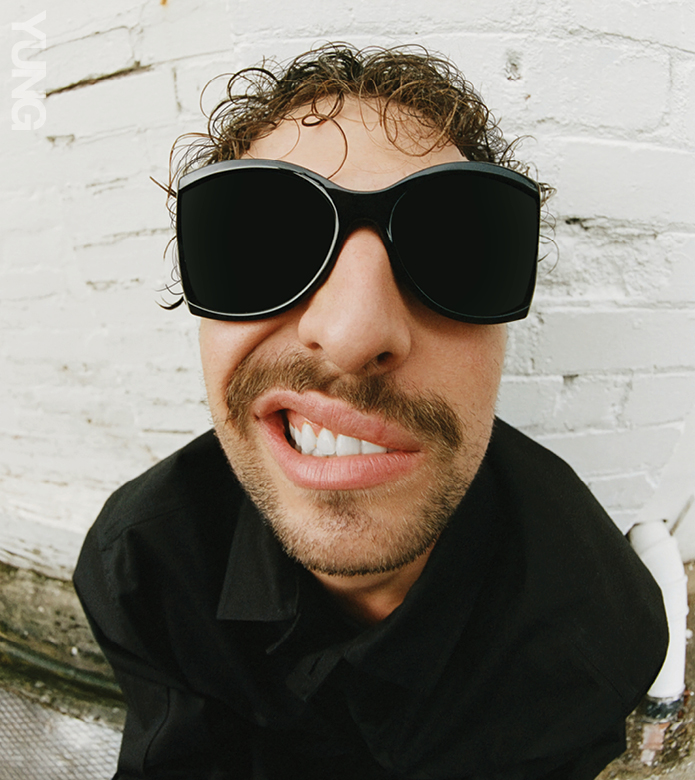
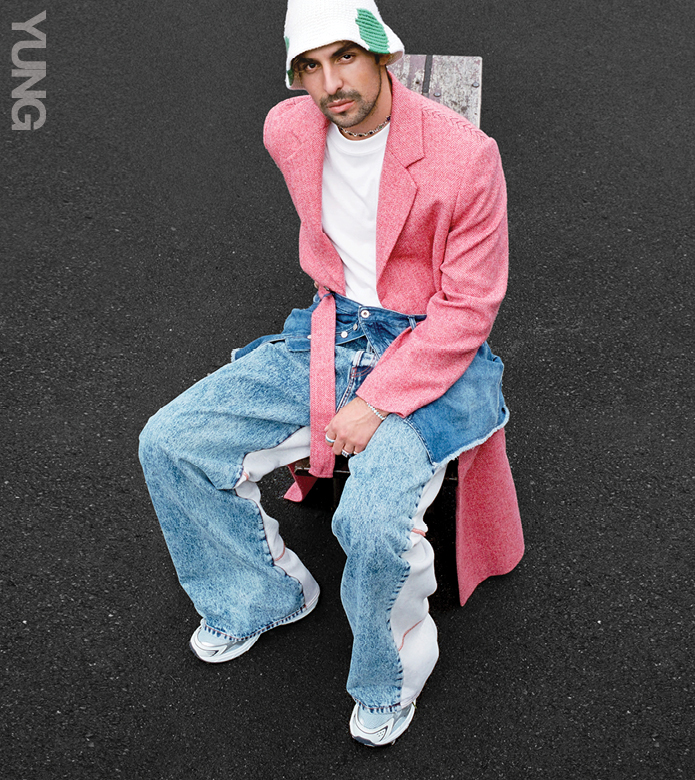
Abdelhamid wanted to take information and research he has accumulated over the years from Edward Said and Rashid Khalidi and make it accessible to a new, younger generation that lives online today. “I grew up a feminist and I would always have debates with my male friends about the concept of feminism. You’re basing your self-worth as a man, on the reputation of a female relative. I just wanted to poke fun at that.”
Fast forward to 2021 and Abdelhamid found himself at the forefront of something, with over 100,000 followers, juggling political activism online and his startup Home Grown – which connected Palestinians with entrepreneurs for investment purposes – and music. However, it wasn’t until he posted his Jerusalem freestyle on TikTok that made him realise music was probably what he was destined to do. “I dropped three songs, very much influenced by Palestine, and then came the time when Sheikh Jarrah happened and I posted some videos and those went viral.”
Abdelhamid was left with a choice: music, activism or his startup? When it came to music, “I was like, I’m going to regret this when I’m 80 and I saw what could happen if I put my mind to something and focus on it for a year. I was like, let me take that same focus and the stuff that I learned by doing my startup like problem solving, building a team, identifying markets, take that and put it into music and see what happens. A year later, I’m on the cover of YUNG,” he says, smiling, proud of his accomplishments thus far. “I never thought I’d be doing music seriously,” he adds. But when it comes to this guy, you soon discover that there’s a needle threading all his different creative personalities together. “I was talking to my mum about it yesterday and she said, “I miss when you used to make your videos” and I’m like, I’m still channeling that energy but I guess now it’s just a different art form. Those videos that I would make were art, now it’s just a different kind of art. I guess I’m just growing.”
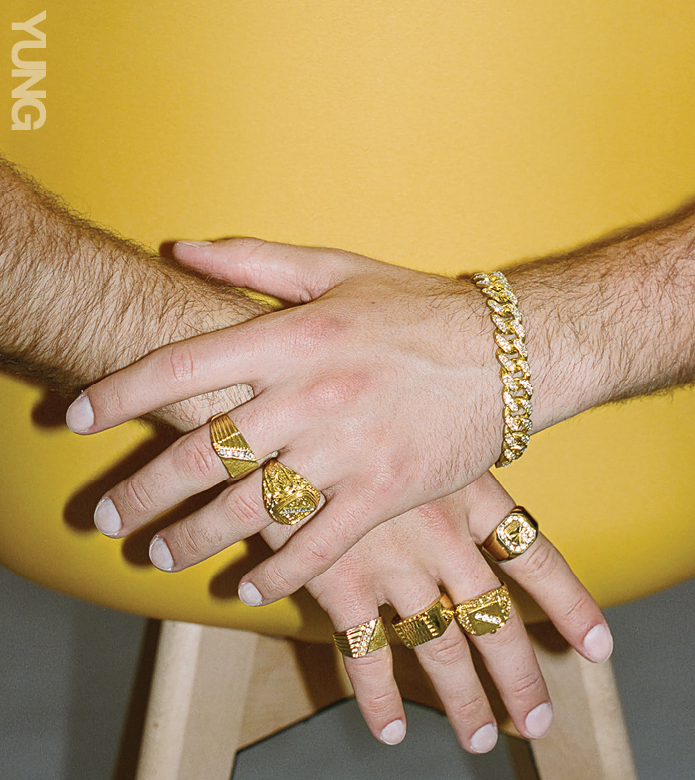
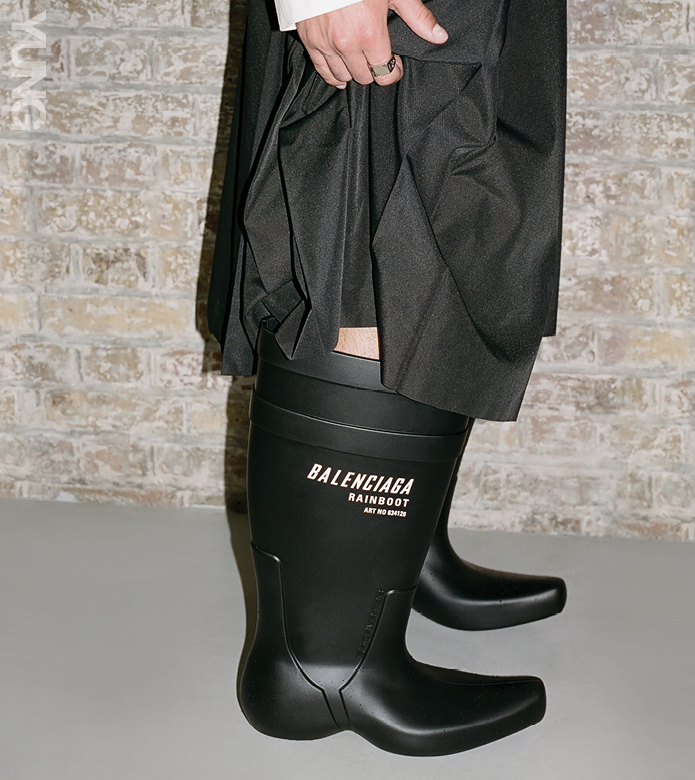
As he sits in his Los Angeles apartment, he tilts his camera and points to his home studio – a mini set-up in his living room with all the necessary equipment needed to do his stuff. “That’s where I make my music,” he says laughing. “My executive producer and I sit right there and we usually start with the chords. The chords will dictate how the song goes.” They both then work on the beat, which usually takes about a week to finish. “I hum some melodies when we’re creating the beat and then things come to me as I’m freestyling, I could be saying gibberish and a word comes up and then I look at how it makes me feel and I keep experimenting. The writing is natural, whether it comes out in French, English or Arabic,” referring to the multilingual approach that has built him something of a cult following over the last year.
Abdelhamid’s pursuit of music was inevitable. It was a childhood dream that somehow manifested into reality over the years. He never doubted his success, but that doesn’t stem from arrogance, rather his ability to believe in himself no matter the circumstances. “I have this unhealthy confidence,” he says. “It was never a question. Last year I was like, I’m going to make this. I don’t know how or when. It comes from a confidence that if I do it, I know I can.” Today, he’s fully independent and living his dream for himself only.
“What I can say is that I won’t wait for anyone to give me something. I think I kind of manifested this. I put myself in situations where sometimes it’s luck…but I made that luck for myself, by putting myself out there as much as possible.”
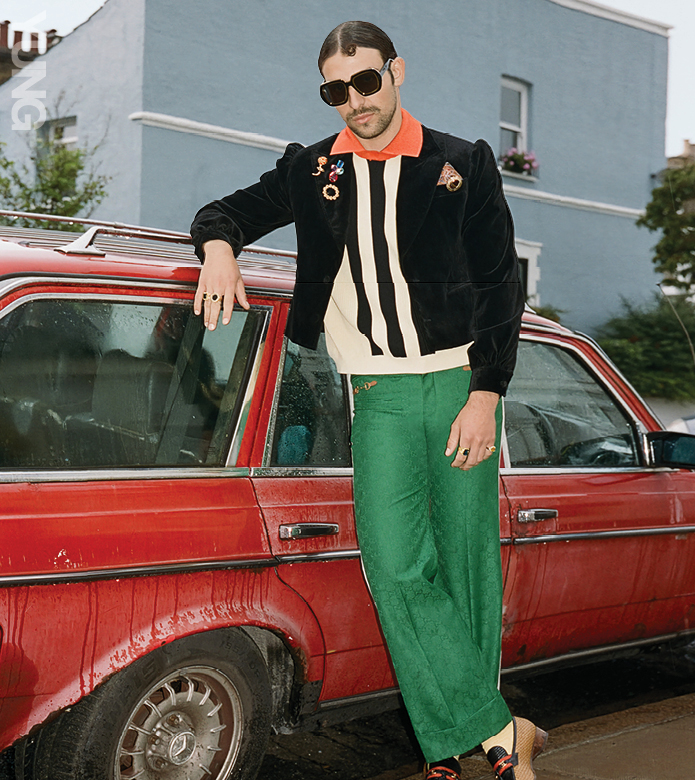
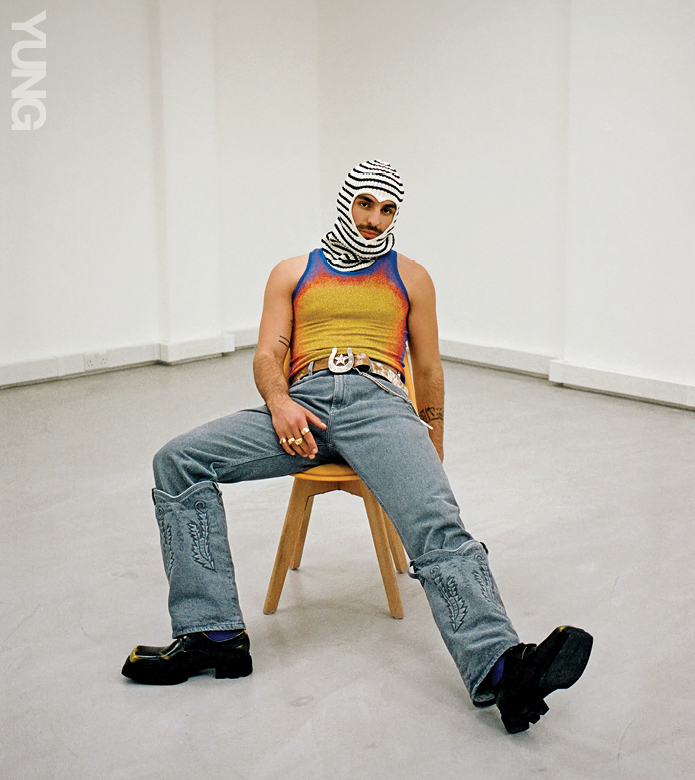
Production credits
Photography: Cheb Moha
Styling: Zahra Asmail
Creative Direction: Saif Hidayah
Styling Assistant: Reece Moore
Makeup: Hadeel Tal
Hair: Hyemin Jeong
Producer: Mohammad Alnatour
Production Assistant: Mehdi Almoussawi
Executive Producer: Lina Merhy